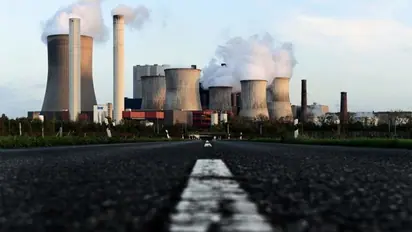Air pollution in Europe biggest threat to human health, killing over 3,00,000 people in a year: Report

Synopsis
Heart disease and strokes are the leading causes of premature mortality attributed to air pollution, followed by lung illnesses such as cancer.
Premature fatalities from fine particle air pollution have decreased by 10% each year in Europe. However, according to the European Environment Agency on Monday, the invisible killer still accounts for 307,000 deaths per year. According to an EEA analysis, if EU states adopted the World Health Organization's most recent air quality criteria, the number of fatalities recorded in 2019 might be cut in half. The number of deaths associated with fine particulate matter (PM2.5) was estimated to be 346,000 in 2018.
According to the European Union's air pollution statistics centre, the apparent decline in mortality the following year was attributed partly to favourable weather but, more importantly, to a steady improvement in air quality across the continent. According to the analysis, tiny particles penetrating deeply into the lungs caused roughly a million premature deaths in the 27 EU member countries in the early 1990s.
In 2019, 53,800 individuals were killed by fine particulate matter in Germany, 49,900 in Italy, 29,800 in France, and 23,300 in Spain. With 39,300 fatalities per capita, Poland had the highest number of fatalities.
Also Read | Exposure to air pollution may significantly increase risk of depression, reveals study
The EEA also records premature deaths connected to two additional major pollutants but does not include them in its total toll to prevent doubling up. Nitrogen dioxide-related deaths, primarily from cars, trucks, and thermal power plants, decreased by a fifth to 40,000 between 2018 and 2019. In 2019, the number of people killed by ground-level ozone fell 13% to 16,800. According to the organisation, air pollution is still the most severe environmental danger to human health in Europe.
Heart disease and strokes are the leading causes of premature mortality attributed to air pollution, followed by lung illnesses such as cancer. Atmospheric pollution can damage lung development in children, induce respiratory infections, and worsen asthma. Even if the situation is improving, the European Environment Agency (EEA) cautioned in September that most EU nations were still exceeding recommended pollution levels, whether they were European recommendations or more aggressive WHO objectives. According to the United Nations, air pollution causes seven million premature deaths worldwide each year, on par with smoking and lousy food.
Also Read | Delhi could witness worst smog episode in 2021 , longest in four years: Report
Compared to 2005, the EU targets reducing premature deaths from fine air pollution by at least 55% by 2030. The organisation thinks that if air pollution continues to fall at its present rate, the goal will be fulfilled by 2032.